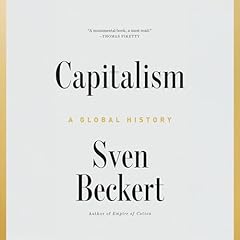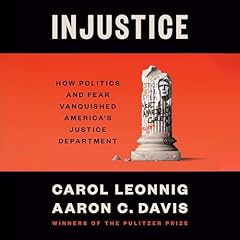
The Lost History of Liberalism
From Ancient Rome to the Twenty-First Century
No se pudo agregar al carrito
Add to Cart failed.
Error al Agregar a Lista de Deseos.
Error al eliminar de la lista de deseos.
Error al añadir a tu biblioteca
Error al seguir el podcast
Error al dejar de seguir el podcast
 Exclusivo para miembros Prime: ¿Nuevo en Audible? Obtén 2 audiolibros gratis con tu prueba.
Exclusivo para miembros Prime: ¿Nuevo en Audible? Obtén 2 audiolibros gratis con tu prueba.Compra ahora por $19.10
-
Narrado por:
-
Xe Sands
The changing face of the liberal creed from the ancient world to today
The Lost History of Liberalism challenges our most basic assumptions about a political creed that has become a rallying cry - and a term of derision - in today's increasingly divided public square. Taking listeners from ancient Rome to today, Helena Rosenblatt traces the evolution of the words "liberal" and "liberalism", revealing the heated debates that have taken place over their meaning.
In this timely and provocative book, Rosenblatt debunks the popular myth of liberalism as a uniquely Anglo-American tradition centered on individual rights. She reveals that it was the French Revolution that gave birth to liberalism and Germans who transformed it. Only in the mid-20th century did the concept become widely known in the United States - and then, as now, its meaning was hotly debated.
Liberals were originally moralists at heart. They believed in the power of religion to reform society, emphasized the sanctity of the family, and never spoke of rights without speaking of duties. It was only during the Cold War and America's growing world hegemony that liberalism was refashioned into an American ideology focused so strongly on individual freedoms.
Today, we still can't seem to agree on liberalism's meaning. In the United States, a "liberal" is someone who advocates big government, while in France, big government is contrary to "liberalism". Political debates become befuddled because of semantic and conceptual confusion. The Lost History of Liberalism sets the record straight on a core tenet of today's political conversation and lays the foundations for a more constructive discussion about the future of liberal democracy.
©2018 Princeton University Press (P)2018 TantorLos oyentes también disfrutaron:




















Las personas que vieron esto también vieron:













It's s a shame though, that the audio volume is not properly adjusted, which makes it impossible to listen to with phone in even just a little noise. Just turn up the volume god damn it, is it so hard!?
good book, but bad audio
Se ha producido un error. Vuelve a intentarlo dentro de unos minutos.
I enjoyed this history of Liberalism
Se ha producido un error. Vuelve a intentarlo dentro de unos minutos.
Great history, much needed
Se ha producido un error. Vuelve a intentarlo dentro de unos minutos.
Narrator made the history of liberalism sexy
Se ha producido un error. Vuelve a intentarlo dentro de unos minutos.
Educative and informative
Se ha producido un error. Vuelve a intentarlo dentro de unos minutos.


